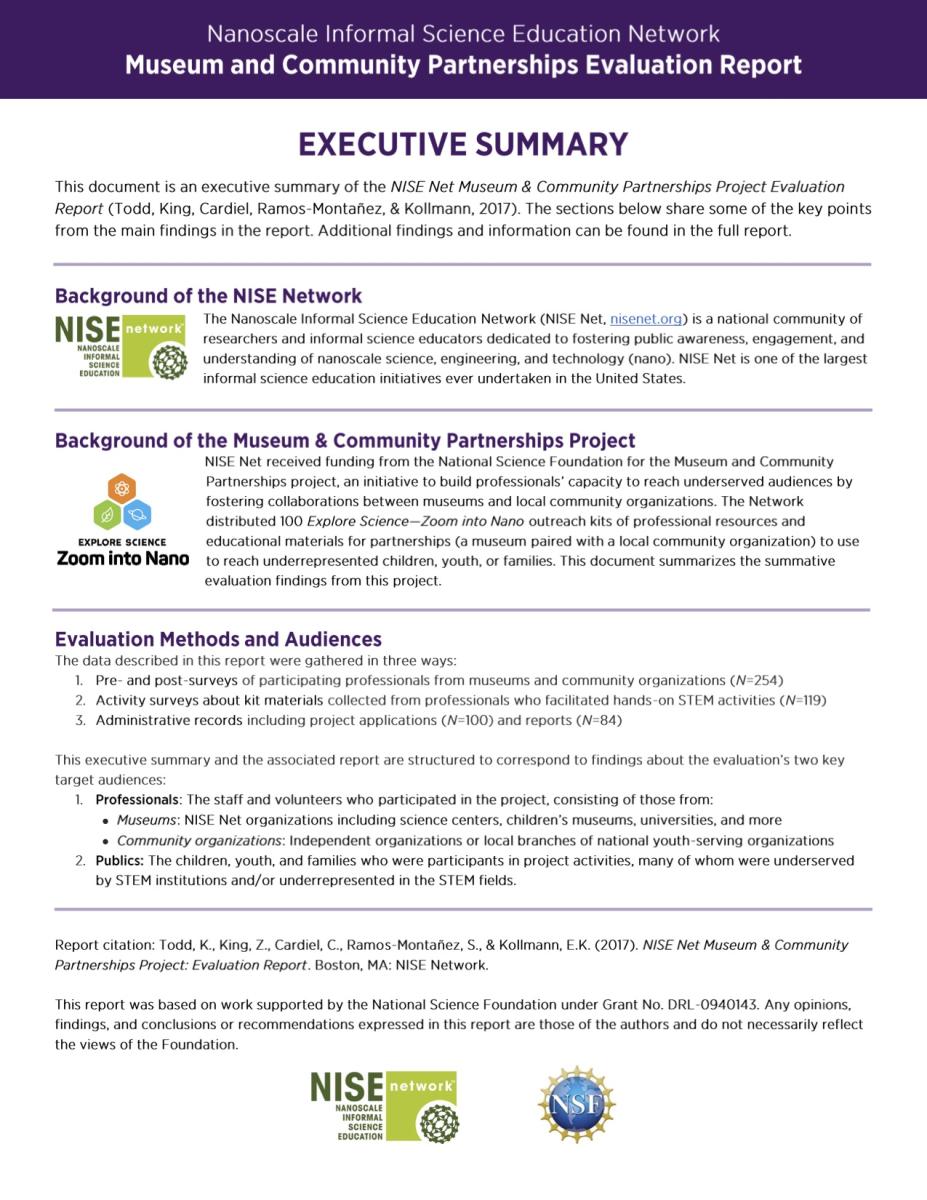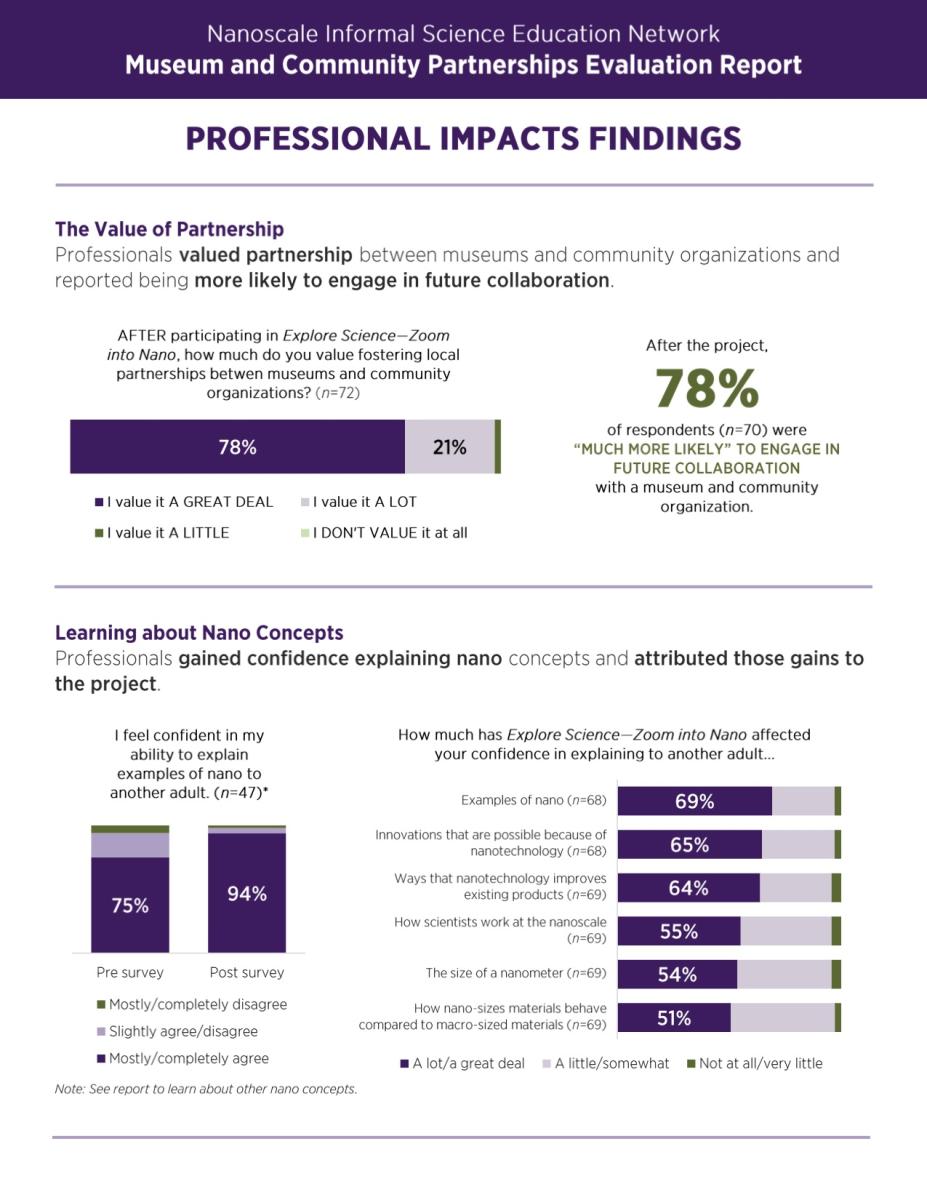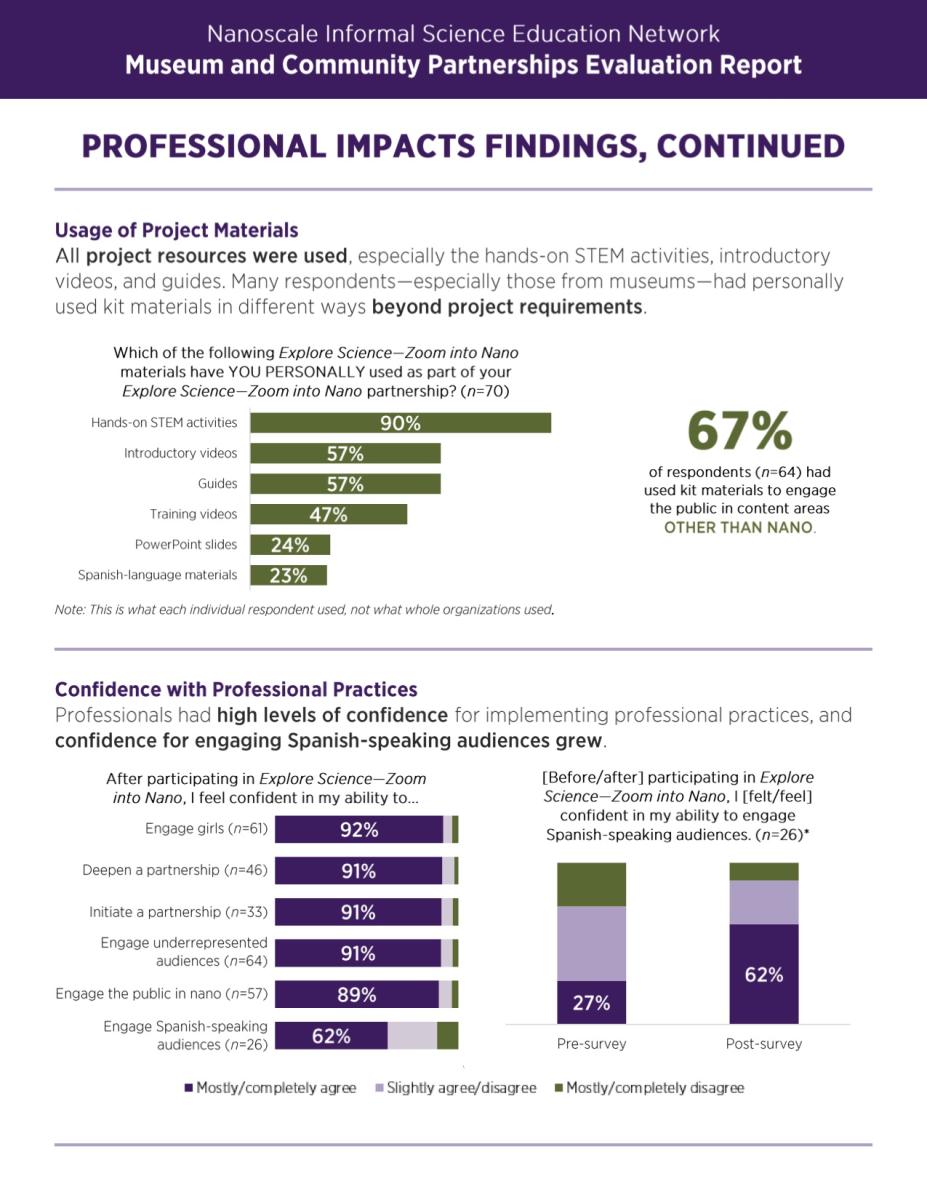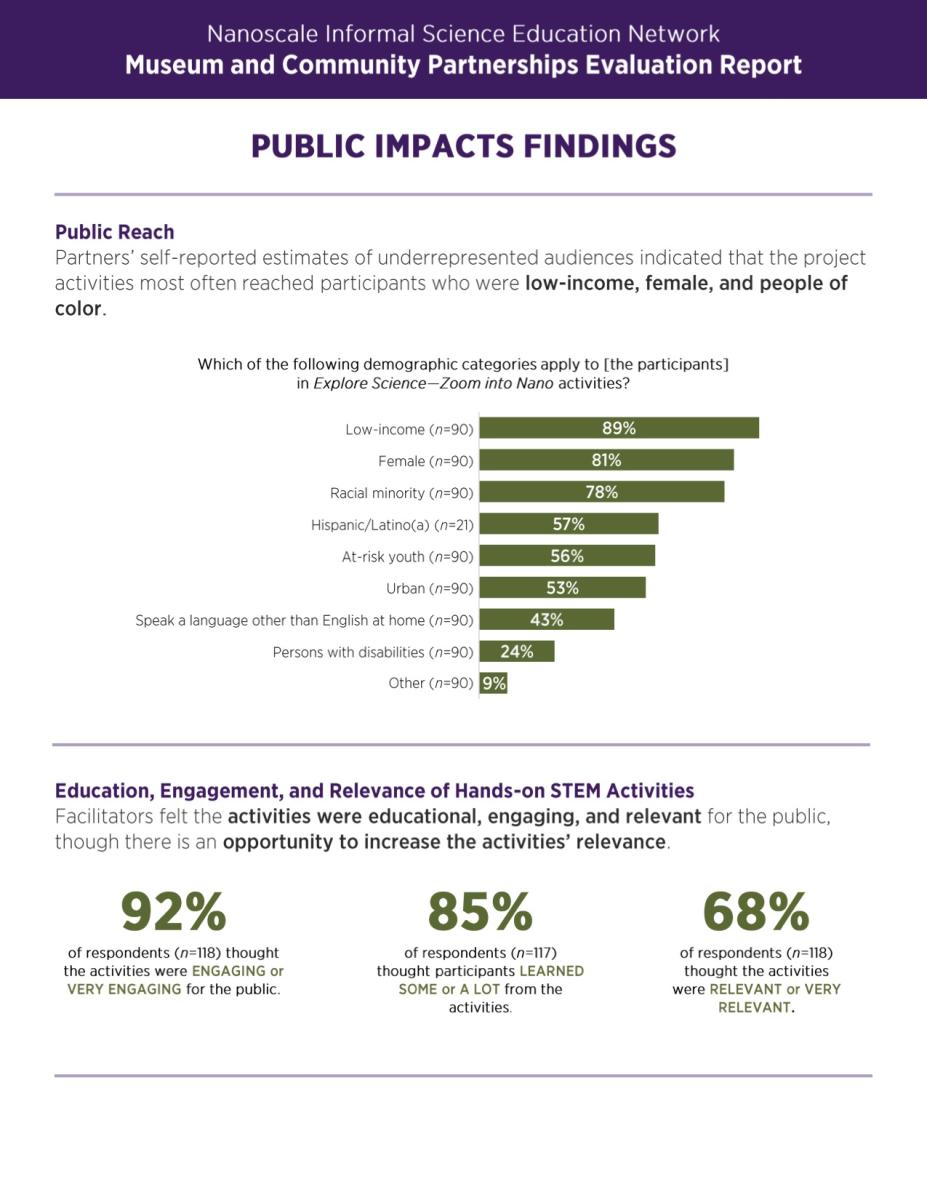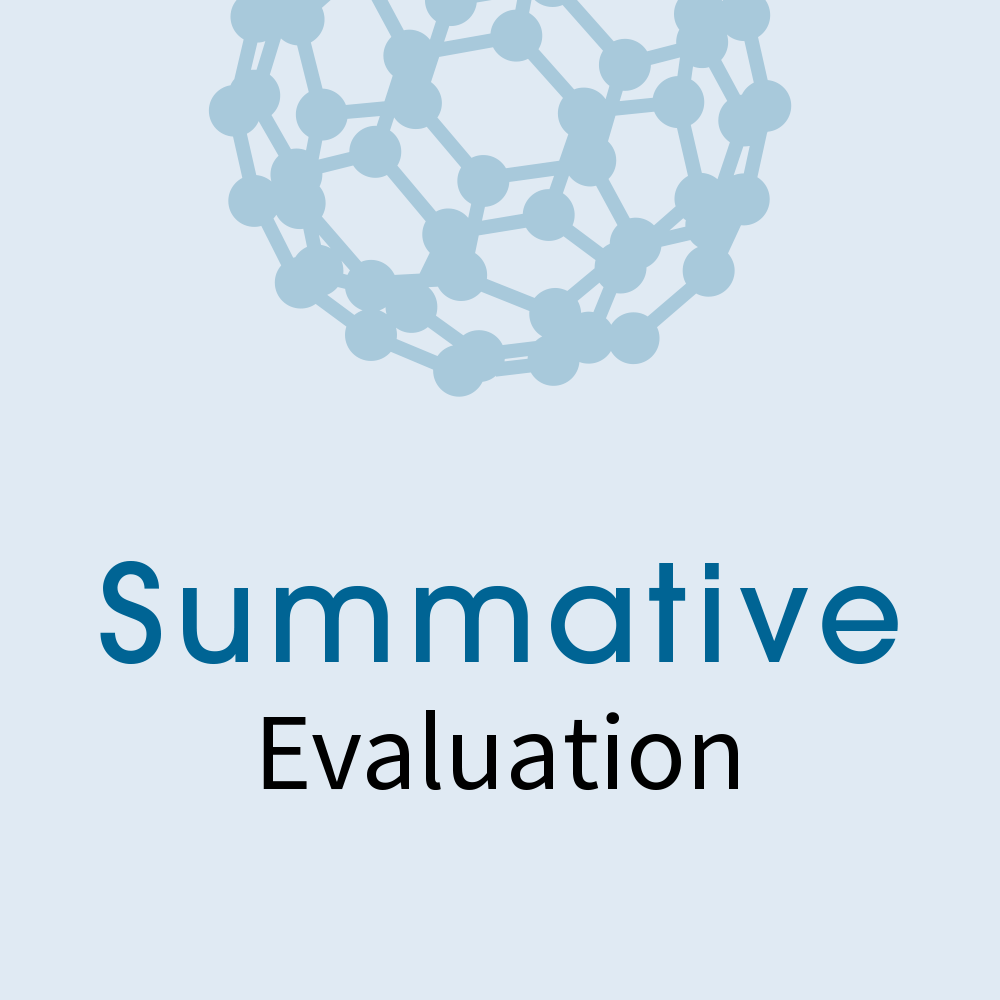DESCRIPTION
In 2015, NSF provided supplemental funding that enabled the Nanoscale Informal Science Education Network (NISE Net) to help NISE Network partners: 1. Broaden the Network’s reach by engaging audiences that the partner organizations were not currently serving and are traditionally underserved by science, technology, engineering, and mathematics (STEM) institutions and underrepresented in STEM fields and 2. Create new or expanded collaborations between NISE Net partners and local community partners . The project was designed for existing, active NISE Network partners (such as children’s museums, science museums, science centers, and university research center outreach programs) within the United States. This report details the evaluation of these efforts.
Authors:
Katie Todd, Zdanna King, Chris Cardiel, Smirla Ramos-Montañez, and Elizabeth Kunz Kollmann
Suggested citation:
Todd, K., King, Z., Cardiel, C., Ramos-Montañez, S., & Kollman, E.K. (2017). NISE Network Museums & Community Partnerships Project: Evaluation Report. Boston, MA: Museum of Science for the NISE Network. https://www.nisenet.org/catalog/nise-net-museum-community-partnerships-project-summative-evaluation-report
DESCRIPTION
In 2015, NSF provided supplemental funding that enabled the Nanoscale Informal Science Education Network (NISE Net) to help NISE Network partners: 1. Broaden the Network’s reach by engaging audiences that the partner organizations were not currently serving and are traditionally underserved by science, technology, engineering, and mathematics (STEM) institutions and underrepresented in STEM fields and 2. Create new or expanded collaborations between NISE Net partners and local community partners . The project was designed for existing, active NISE Network partners (such as children’s museums, science museums, science centers, and university research center outreach programs) within the United States. This report details the evaluation of these efforts.
Authors:
Katie Todd, Zdanna King, Chris Cardiel, Smirla Ramos-Montañez, and Elizabeth Kunz Kollmann
Suggested citation:
Todd, K., King, Z., Cardiel, C., Ramos-Montañez, S., & Kollman, E.K. (2017). NISE Network Museums & Community Partnerships Project: Evaluation Report. Boston, MA: Museum of Science for the NISE Network. https://www.nisenet.org/catalog/nise-net-museum-community-partnerships-project-summative-evaluation-report
Credits
Museum of Science
Developed for the NISE Network with funding from the National Science Foundation under Award Numbers 0532536 and 0940143. Any opinions, findings, and conclusions or recommendations expressed in this product are those of the authors and do not necessarily reflect the views of the Foundation.
Creative Commons Attribution Non-Commercial Share Alike 3.0 United States (CC BY-NC-SA 3.0 US).
View more details

NISE Network products are developed through an iterative collaborative process that includes scientific review, peer review, and visitor evaluation in accordance with an inclusive audiences approach. Products are designed to be easily edited and adapted for different audiences under a Creative Commons Attribution Non-Commercial Share Alike license. To learn more, visit our Development Process page.

